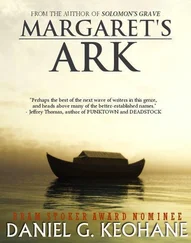C. Palov - Ark of Fire
Здесь есть возможность читать онлайн «C. Palov - Ark of Fire» весь текст электронной книги совершенно бесплатно (целиком полную версию без сокращений). В некоторых случаях можно слушать аудио, скачать через торрент в формате fb2 и присутствует краткое содержание. Год выпуска: 0101, Издательство: Penguin USA, Inc., Жанр: Старинная литература, на английском языке. Описание произведения, (предисловие) а так же отзывы посетителей доступны на портале библиотеки ЛибКат.
- Название:Ark of Fire
- Автор:
- Издательство:Penguin USA, Inc.
- Жанр:
- Год:0101
- ISBN:нет данных
- Рейтинг книги:3 / 5. Голосов: 1
-
Избранное:Добавить в избранное
- Отзывы:
-
Ваша оценка:
- 60
- 1
- 2
- 3
- 4
- 5
Ark of Fire: краткое содержание, описание и аннотация
Предлагаем к чтению аннотацию, описание, краткое содержание или предисловие (зависит от того, что написал сам автор книги «Ark of Fire»). Если вы не нашли необходимую информацию о книге — напишите в комментариях, мы постараемся отыскать её.
Ark of Fire — читать онлайн бесплатно полную книгу (весь текст) целиком
Ниже представлен текст книги, разбитый по страницам. Система сохранения места последней прочитанной страницы, позволяет с удобством читать онлайн бесплатно книгу «Ark of Fire», без необходимости каждый раз заново искать на чём Вы остановились. Поставьте закладку, и сможете в любой момент перейти на страницу, на которой закончили чтение.
Интервал:
Закладка:
“Moses, the man who led the Jews out of bondage and commanded the ragtag Hebrew tribes as they wandered the wilderness for forty years? That Moses was an Egyptian magician?”
He nodded.
“You know what I think, Mr. Caedmon Aisquith? I think you’ve eaten way too much paste. For starters, the Egyptians were a bunch of pagans. They had—what?—like a couple hundred gods.”
“Not nearly as many as all that,” he quietly corrected, well aware that the theory he was about to propose would scandalize many a churchgoer. “Would it surprise you to learn that the ancient Egyptians were the first people to practice monotheism? Known as Atenism, for several decades it was the state religion, the pharaoh Akhenaton officially declaring that Aten was the only god in the heavens.” Leaning forward, he propped his forearms on his thighs; the point he was about to make was key to his argument. “Aten was not the supreme god; Aten was the only god. Furthermore, I believe that Moses, or Tuthmoses as he was known in the Egyptian high court, was not only an avid follower of the Aten religion, but he fused the beliefs of Atenism to that of the fledgling Hebrew faith.”
Edie stared at him, saucer-eyed. “What are you saying, that Yahweh and the Egyptian god Aten were one and the same?”

CHAPTER 21
Unwilling to tread those murky depths, Caedmon purposefully equivocated. “I am merely saying that there are areas of overlap between the two religions.”
“Such as . . . ?”
“Such as the Ten Commandments, which are suspiciously similar to the behavioral mandates put forth in the Egyptian Book of the Dead, a work that predates the biblical Exodus. And let us not forget circumcision, an unusual practice to say the least. Did you know that circumcision was a ritualistic procedure among the Egyptian royal family and their attendant court? Other similarities include the stricture against graven images, a hereditary priesthood, the sacrifice of animals, and the use of a golden ark to contain the might and majesty of what can only be called a very jealous god.” His case made, Caedmon folded his arms across his chest. “Would you not agree that such similarities give one pause?”
“Yeah, well, right now I need to pause and catch my breath because I’m still grappling with Moses being an Egyptian magician.” Edie took a noisy slurp of her G&T, loudly chomping down on an ice cube. “I’m sorry, Caedmon, but I’m having a hard time buying off on Judaism descending from some long-lost Egyptian religion.”
“I am not speaking of Judaism as it is practiced today, that being a religion primarily created in the sixth century B.C. during the Babylonian Captivity. I am speaking of the Hebrew religion as it was practiced from the time of the Exodus up until the Babylonian Captivity, a span of roughly seven hundred years.”
“So, which came first, the worship of Aten or the worship of Yahweh?”
“Ah, the ‘chicken or egg’ conundrum. In the same way that Roman religious practices influenced early Christianity, I believe that the enslaved Jews in Egypt influenced, and perhaps even inspired, the worship of Aten. The Old Testament makes mention of Moses having been instructed in ‘all the wisdom of the Egyptians.’”
“What exactly does that mean, ‘all the wisdom of the Egyptians’?”
The question immense in its scope, Caedmon thoughtfully considered his reply. “The prescribed Egyptian education included the study of crystals and metals, necromancy, and the art of divination. Knowledge that Moses put to good use when creating the fabled Stones of Fire.”
“But I saw the breastplate with my own eyes. It was just”—she shrugged—“twelve jewels and some bits of old gold.”
“Yes, but it’s those very jewels that give the Stones of Fire its immense power.”
“Okay, I’ll nibble. What’s so special about those twelve jewels?”
“Allow me to preface my answer by saying that gemstones are not the inert, inanimate objects that most people assume them to be. Indeed, gemstones, as well as crystals, are energy conduits. In Asian cultures, such energy is known as chi .”
“I have a girlfriend who’s into crystals. She swears that if you hold a crystal long enough in your hand you’ll soon feel a vibratory pulse. Personally, I consider that awfully New Agey.”
“Not if you consider the fact that crystals are used to boost radio waves in a process known as piezoelectricity. In a similar process, the ancients used gemstones and crystals to both generate and enhance energy. A high priest steeped in the mysteries of ancient Egypt, Moses used his vast knowledge of gems and crystals when creating the Stones of Fire. I would even go so far as to say that the breastplate is nothing less than a form of ancient technology, each stone specifically selected for its unique vibratory properties.”
At hearing that, Edie snorted. “You’re kidding, right? I’d hardly call an old breastplate a technological wonder.”
“Ah, but that’s exactly what the breastplate was, and perhaps still is—ancient technology. Just because the word Sony isn’t stamped on it doesn’t make it any less sophisticated than the mobile phone in my breast pocket,” he countered, patting said pocket. “The Stones of Fire, even by twenty-first-century standards, is state of the art.”
She mulled that over for a paltry half second before uttering a noncommittal, “Huh.”
Reaching across to the nightstand that separated the two double beds, Edie grabbed a pink and white bag of Oreo cookies. Using both hands, she ripped it open, slid free a tray of factory-packed, chemical-laced brown biscuits, and offered him one.
“No, thank you,” he politely demurred.
Her lips curled in a come-hither smile. “Ah, come on, Caedmon. Try it, you’ll like it.”
Realizing how easily Adam had been swayed, he took a crème-filled biscuit.
“Quite tasty,” he remarked a few seconds later.
With a twist of the wrist, Edie unscrewed the two halves of her biscuit. Then, to his utter surprise and lurid fascination, she proceeded to lap at the white cream with her tongue. “Okay, let’s suppose for argument’s sake that Moses was a member of the Egyptian priesthood. Why would he lead a bunch of Hebrew slaves out of Egypt?”
“Your question presumes that the Jews, and only the Jews, left Egypt.”
“Well, who else would have gone with them?”
“All those in grave danger of losing their lives.” He let that sink in a moment before saying, “Specifically, the entire court of Akhenaton.”
She lowered her cookie. “Come again?”
“What you must understand is that when the pharaoh Akhenaton imposed a monotheistic faith upon the inhabitants of Egypt, it was nothing short of a religious revolution. Not unlike the furor that ensued when Martin Luther put nail to paper. Suddenly, overnight, the pantheon of familiar gods and goddesses—Isis, Set, Osiris—were rendered null and void.”
“I’m guessing that what some considered a new religion, others considered an out-and-out heresy,” Edie correctly surmised.
“Indeed. When Akhenaton died, the practitioners of the old religion swooped down upon the royal court. And with a vengeance, I might add, all traces of Akhenaton and Aten wiped clean from the annals of Egyptian history.”
“What happened to those Egyptians who still believed in Aten?”
“They fled Egypt in the dead of night. A vast migration of slave and nobility.”
“Well, that would explain the passage in the book of Exodus where the Hebrew slaves supposedly took ‘jewels of silver and jewels of gold’ with them when they fled Egypt. I mean, how the heck did a bunch of slaves get that kind of treasure trove?”
Читать дальшеИнтервал:
Закладка:
Похожие книги на «Ark of Fire»
Представляем Вашему вниманию похожие книги на «Ark of Fire» списком для выбора. Мы отобрали схожую по названию и смыслу литературу в надежде предоставить читателям больше вариантов отыскать новые, интересные, ещё непрочитанные произведения.
Обсуждение, отзывы о книге «Ark of Fire» и просто собственные мнения читателей. Оставьте ваши комментарии, напишите, что Вы думаете о произведении, его смысле или главных героях. Укажите что конкретно понравилось, а что нет, и почему Вы так считаете.










